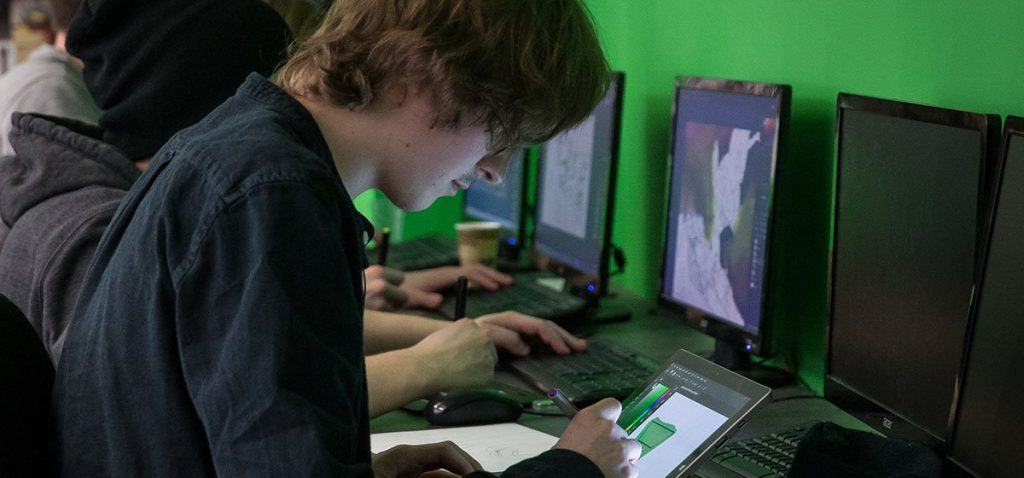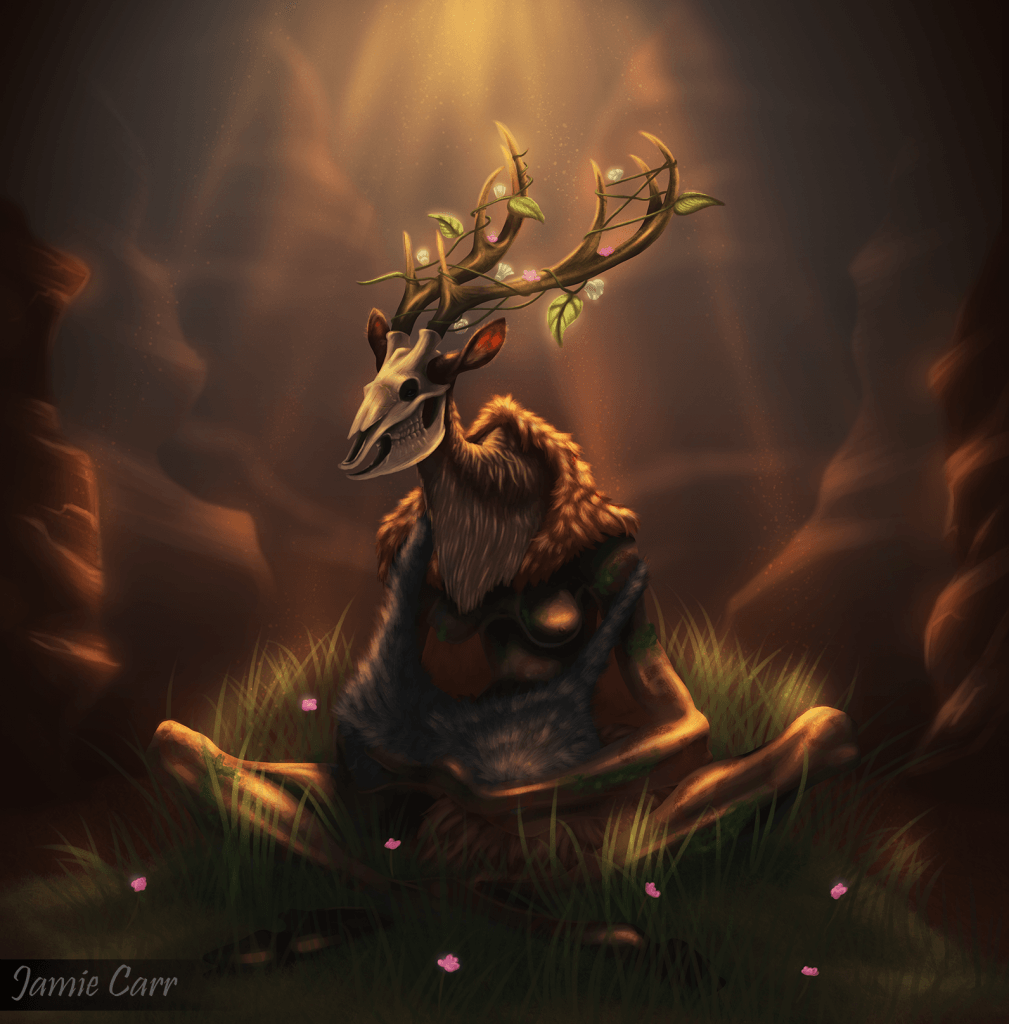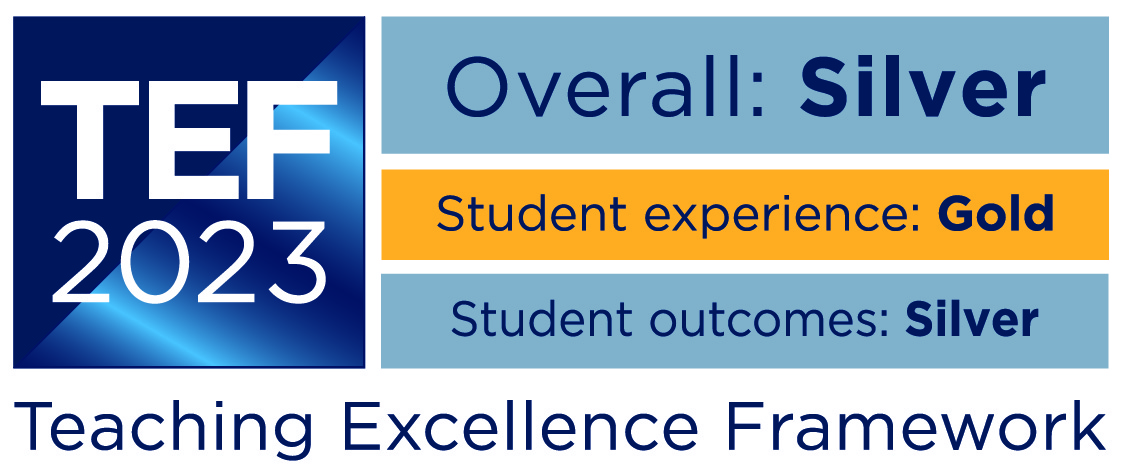Games development is an exciting and rewarding industry. So Futureworks has developed a Game Art degree which will produce graduates who have a wide skill set, making them valuable as employees of either large game developers, or smaller independent game studios – or even as talented and in-demand freelancers.
- 3D Digital Techniques
- 3D Digital Art
- Digital Painting
- Game Engines
- Small Class Sizes
- Excellent Course Structure
- Industry Contacts
- Creative Community
- Broad Career Opportunities
- Excellent Tutor Support
- Real-World Briefs
- Industry Standard Facilities
- Industry Standard Hardware and Software
- Year 1
You will start by focusing on developing your existing traditional artistic abilities in such areas as drawing fundamentals, colour theory and perspective, leading to anatomy, composition and the use of digital tools. -
Year 2
Building on Year 1, you will continue to develop your understanding of 3D, exploring character and environment art. At the same time, you will progress through advanced visual design processes. -
Year 3
You will further develop your skills through rigorous development and exploration in your chosen specialism culminating in a body of work which will help you take your first steps in the industry.
Why Choose The Game Art Degree at Futureworks?
If you are studying an art or related creative course in sixth form or college and want to enhance your artistic and design skills while also pursuing your passion for games, then this course is ideally suited to you.
You will gain a wide range of technical skills with the ability to specialise in one or more core disciplines within the games industry.
You will benefit from the experience of our highly experienced tutor team who are all currently active within the industry. This means that they keep abreast of developments and ensure that the course content adapts every year to reflect the changing nature of industry. So you can be confident that the skills you are learning are relevant to the current games job market.
Students benefit from our small class sizes, meaning you will receive more individual time with tutors. It gives us the time and space to personalise the course around you and for us to develop suitable projects around your chosen specialisms.
This course is validated by the University of Central Lancashire (UCLan)
Your Game Art Career Opportunities
With such a broad range of artistic abilities under your belt, it is difficult to list all the roles in this growing industry that are available. However, successful graduates from the Game Art degree will be in pole position to become 2D Artists, 3D Environment Artists, 3D Character Artists and 3D Technical Artists. With opportunities becoming widely available both in the UK and overseas, this is the course that could allow you to become part of the next generation of inspirational Game Artists.
Location & Teaching
Your primary location of study will be at our Riverside Campus, which is located on New Bailey Street in Manchester. As part of your course, some of your lessons may take place at our Futureworks Studios facility located in MediaCityUK, a few miles from the city centre.
Futureworks recognises that the skills, competencies and contribution of its staff are vital to the delivery of high quality Higher Education. All programmes are managed by a dedicated Programme Leader and team of experienced tutors, and our excellent links with industry employers mean you’ll have access to exciting guest lectures and fantastic opportunities to gain experience on real-world projects.
Applying to this Course
To be considered for this course, you will require 104-120 UCAS points.
Futureworks is able to accept any applications from applicants who require a Student Visa (formerly called Tier 4 Visa) to study in the UK. Entry criteria for International students will vary. Please see International Students for full details.
You can apply for this course by submitting an application via the UCAS system. The UCAS codes for this course are as follows:-
UCAS Code: I620
Institution Code: F98
If you have any questions about applying for a degree course please call us on 0161 214 4602, email [email protected] or look at our Admissions page.
If your application is successful, you will be invited to an interview where you will have the opportunity to talk about your work, influences and interests. A guide will be sent with your interview details to help you prepare for your interview. Ideal applicants will have a keen interest in art, design, and video games. You will be asked to bring any relevant examples of work with you, in the form of a portfolio. The portfolio is required for this course and applications will not be considered without the provision of a portfolio.
For your portfolio we recommend including some observational drawing, ideally life drawings. For any work that is large format or difficult to scan please take clear well-lit photographs of the pieces.
As well as including work done for school or college we like to see personal art so feel free to include original character work, personal illustrations or original fan art (i.e. art not copied from something). Experience in digital drawing/painting or 3D is not necessary prior to starting the degree, but if you have explored any of these avenues already then we’d love to see them. We like to see 8 or more finished pieces and take the presentation of the work into account.
All of our courses start in September and are full time, 3 year courses. More information on relevant dates can be found on the Term Dates page.
“I've had a fantastic time studying game art at Futureworks, brilliant mentorship and guidance from the tutors has given me the skillset needed to fulfil my dream job as a concept artist. The course was really interesting and taught me all the essential skills and workflows needed to be a useful asset to any studio.”
Futureworks Game Art BA (Hons) Student

“The excellent support provided by tutors in the form of feedback combined with guest lectures helped me to network and prepare for my role within the industry. The course simulates aspects of the industry such and stand ups, deadlines and project pipelines which fosters an encouraging and creative environment.”
Futureworks Game Art BA (Hons) Student


Validated By



